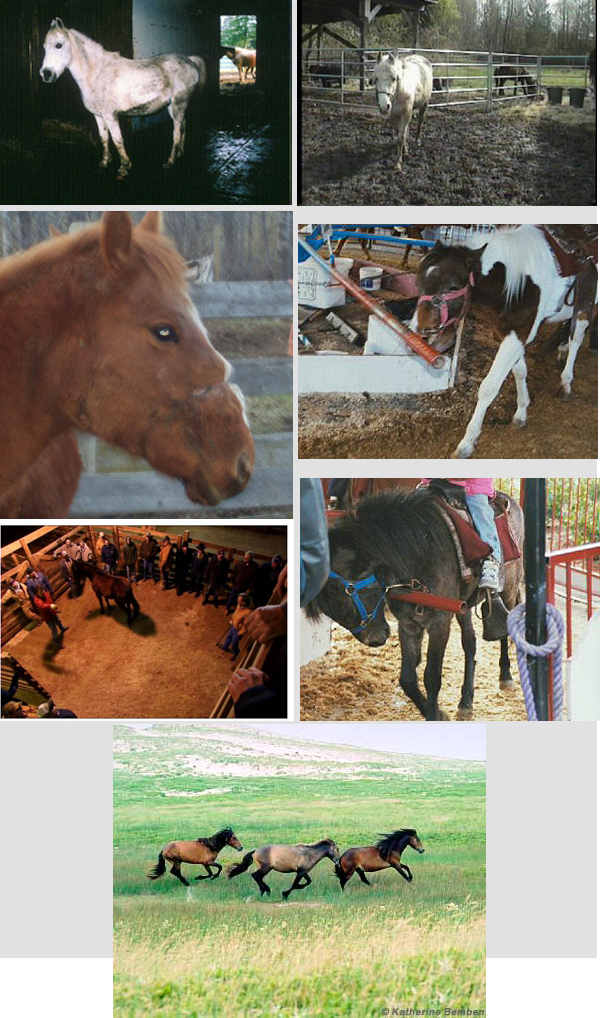Animal Advocates Watchdog
"Horse lovers" will rejoice at the good news that the popularity of their favourite slave is growing. Expanding markets, new markets, new spin ("sustainability" and "green" are the latest p.r. spins used by land and animal exploiters); it's all here in this article.
All domesticated animals, all animals kept by humans for any reason, are human's slaves. They have no free will - they must labour according to our will. If they don't, we will "train" them to labour according to our will, almost always using harsh methods and tools. If they won't or can't labour according to our will, in spite of being beaten or coerced, we may kill them. Or we may sell them to someone who can make them labour according to their will.
Because of their strength, intelligence, speed, and use as transportation, horses labour for humans more than most animals. We shackle them to ploughs and carts; we force them to pull us and machinery around; we make them run so that we can place bets on them; we use them in countless ways to amuse, enrich, and work for us. Then we eat the remains of their noble, broken bodies.
They are paid in food, water, and grooming (sometimes), dark prison stalls, forced labour, and the butcher. Almost every one of them experiences some neglect, abuse, and cruelty during a life of being traded, just as African slaves were traded from owner to owner.
Humans mount them and ride them. Think of the implication of those words. To be mounted and ridden. How can it be more domineering or demeaning than to be mounted and ridden by another creature? To make these beings submit to our will we use a special word: we "break" them. We break them of their will to be their own masters as nature intended; we break them until they submit to our dominance and accept us as their masters. When they are broken, we mount them. When we have no more use for them, we sell them or kill them.
Here's some of the words in Roget's thesaurus for the tools used to make horses submit to our will and our uses. Under the heading Restraint:
Harness, rein, fetter, shackle, bridle, hobble, tether, picket, gag, curb, snaffle, yoke, halter, bit, and corral. Roget's list was not drafted with horses in mind or he might have added spurs, whips, and other painful goads.
Horse "lovers" also have a list -- of justifications for doing all this to the creatures they "love". Exercise (for them). Amusement (for them). Companionship (for them). And because they love to watch the horses' beauty and grace and speed. It's all about them.
Understanding why financial benefitters of horse-slavery are against the abolition of horse-slavery is easy -- it's about the self and about the money. Less easy to understand by the average person is that most horse rescuers are also not in favour of the abolition of horse-slavery. Abolition would mean giving up the loved slaves and giving up the glorification of being a "rescuer" -- it's about the glory and the self.
Can you spot the horses that aren't slaves?

Messages In This Thread
- Is the horse the 'new golf'?
- Study shows: Slaughter is useless as a tool for controlling the unwanted horse population and instead simply creates a market
- "Horse lovers" will rejoice at the good news that the popularity of their favourite slave is growing *PIC*
- Study shows: Slaughter is useless as a tool for controlling the unwanted horse population and instead simply creates a market